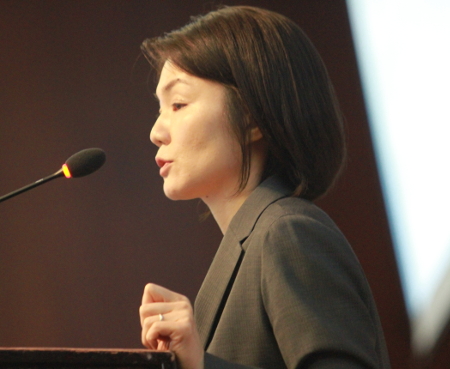 江藤名保子现为日本贸易振兴机构亚洲经济研究所(IDE-JETRO)研究员。专长为中国政治丶中日关系丶东亚国际关系。2001年毕业於美国斯坦福大学国际政治研究硕士班,2009年修毕庆应义塾大学法学部博士班学分,2013年取得庆应义塾大学法学博士学位。曾任人间文化研究机构地域研究推进中心研究员,2004-2005年在北京大学国际关系学院任访问学者。
江藤名保子现为日本贸易振兴机构亚洲经济研究所(IDE-JETRO)研究员。专长为中国政治丶中日关系丶东亚国际关系。2001年毕业於美国斯坦福大学国际政治研究硕士班,2009年修毕庆应义塾大学法学部博士班学分,2013年取得庆应义塾大学法学博士学位。曾任人间文化研究机构地域研究推进中心研究员,2004-2005年在北京大学国际关系学院任访问学者。Full Text
簡体字 / 正體字/ English摘要:
本研究是透过考察中国民族主义当中的中国反西方情绪,来探讨中国为何无法接受西方的“普世價值”。中国共产党以及政府拒绝起源于西方社会且被视为人类全体规范的“普世价值”,同时主张中国有中国特色的价值观。究竟该如何理解这样的中国主张呢?
在考察此问题之际,本文首先将检讨共产党政权如何透过对“西化分化”之批判,来区分其独有的社会主义核心价值与“普世价值”之差异。接着,本文将透过分析中国的官方民族主义的四大要素,来解释反“西方”情绪之动力究竟是如何产生。最后,本文的结论是,习近平政权的“中国梦”所强调的“中国特色”只要伴随着对“西方化”之批判,对于“普世价值”的否定也将会持续下去。
摘要:
本研究是透過考察中國民族主義當中的中國反西方情緒,來探討中國為何無法接受西方的「普世價值」。中國共產黨以及政府拒絕起源於西方社會且被視為人類全體規範的「普世價值」,同時主張中國有中國特色的價值觀。究竟該如何理解這樣的中國主張呢?
在考察此問題之際,本文首先將檢討共產黨政權如何透過對「西化分化」之批判,來區分其獨有的社會主義核心價值與「普世價值」之差異。接著,本文將透過分析中國的官方民族主義的四大要素,來解釋反「西方」情緒之動力究竟是如何產生。最後,本文的結論是,習近平政權的「中國夢」所強調的「中國特色」只要伴隨著對「西方化」之批判,對於「普世價值」的否定也將會持續下去。
Abstract:
This paper investigates anti-Western sentiment in Chinese nationalism and discusses why the Communist Party of China (CPC) and the government of the People’s Republic of China (PRC) reject the supposedly universal values that are espoused by the West. These “universal values”—values originating from Western society but held to be universal throughout the world— are opposed by the CPC and the PRC government in favor of the values with Chinese characteristics . What does this stance mean? First, this paper examines how the CPC distinguishes between its “core socialist values” and universal values, with a conflated criticism of “Westernization and subversion” [xihua-fenhua]. Second, this paper explains the dynamism of anti-Western sentiments in China, through the dominance of four elements of Chinese official nationalism. Finally, this paper warns that, as long as the concept of Chinese uniqueness—as emphasized in Xi Jinping’s Chinese Dream—is coupled with criticism of Westernization, China will no doubt continue to reject universal values.